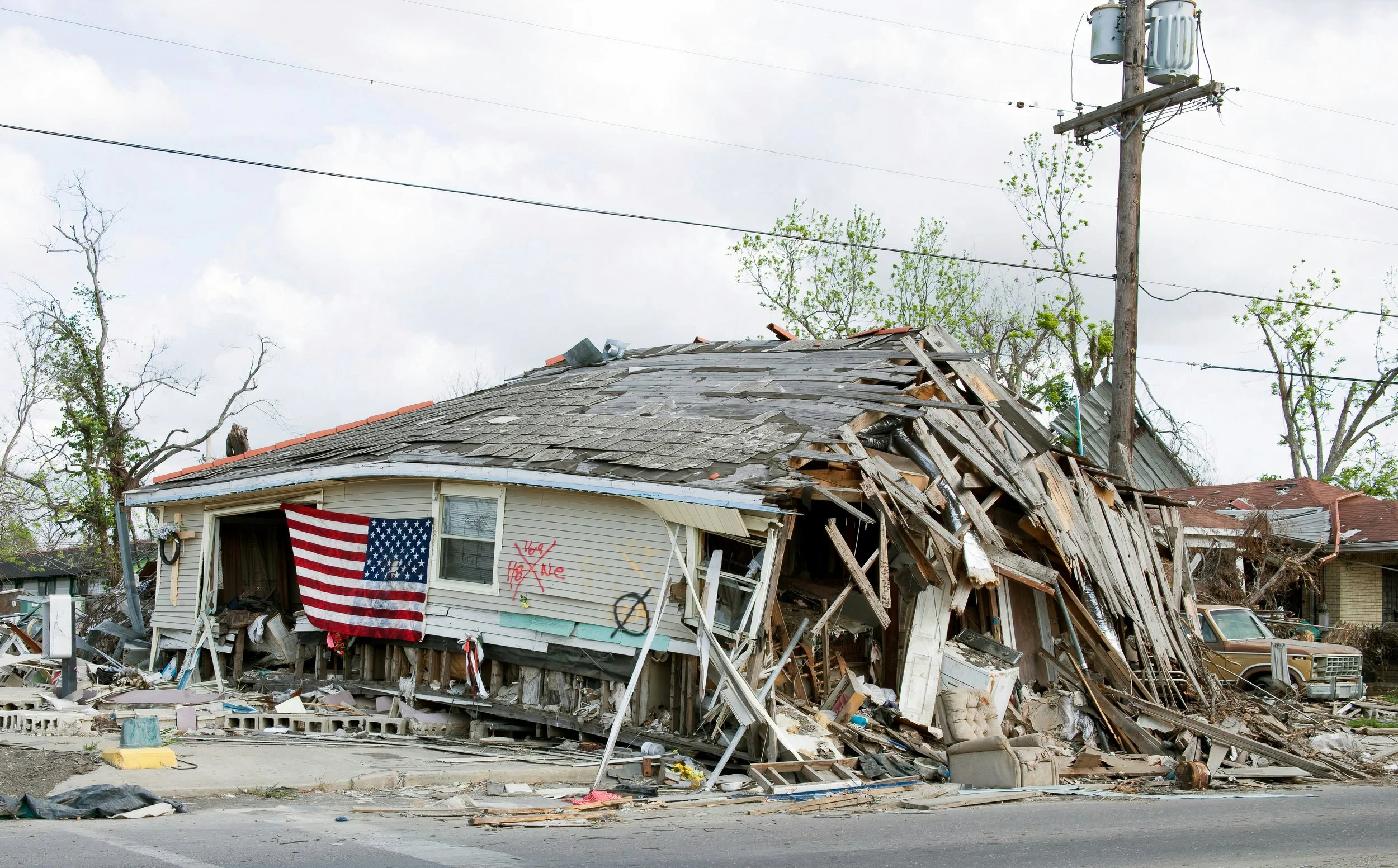Lessons Learned (and Why We Should Care)
A home destroyed in Hurricane Katrina
What is the value of re-examining a disaster and should we do it at all? As a New Orleans native, August 29 is not a date I would like to remember. It seems every year the anniversary of Hurricane Katrina dominates news coverage in my hometown, and shows up everywhere on television and social media as well. For many of us, the images and sounds of that tragedy trigger an intense reaction of panic, terror, and loss. I am torn about whether reexamining events like these serves any purpose beyond just exploitation and click bait. For people who survived or who lost loved ones, this rehashing can be painful. But the alternative – just erasing it and pretending it never happened – seems cruel as well.
Trying to find the right balance between sensationalizing a disaster and thoughtfully dissecting it occurred to me recently during some more recent tragedies, like the flooding in Texas or the DC plane crash in the Potomac. In the immediate aftermath of these situations, some family members of victims bristled at attempts to “assign blame” preferring instead to move on and focus on grieving and healing. And yet, if we don’t examine WHY these things happened and what we could do to PREVENT them from happening again, we are also doing a disservice to those who were lost. In my career, I have responded to a number of (what felt like) disasters and have led the after-action reviews of what happened. I did find this process to be valuable, yet many organizations do not take the time to do this or take it seriously when they do. Don’t we owe it to those who were harmed to find out what went wrong and then try to make it right? I think we do, so here are some suggestions about how to do it well:
CAPTURE THOUGHTS WHILE THEY ARE FRESH
Managing a crisis can be overwhelming, leaving no time to breathe let alone reflect. But as soon as things calm down even a little, start asking people what went wrong, what they wished they had known or prepared for. These initial impressions will fade with time and yet they are often the most revealing insights.
FOCUS ON ANSWERS NOT BLAME
There is a time and a place for accountability, but an after-action report is not it. If people feel like they are being villianized, they will not engage in the meaningful self-reflection that can reveal the missteps, oversights, and poor decisions that need to be addressed in order to prevent future harm.
OWN THE MISTAKES AND DO SOMETHING TO CORRECT THEM
If you do the work to assess what went wrong, then don’t leave it there. Pledge to apply the lessons-learned in ways that can meaningfully improve safety, security, and the overall resilience of your organization.
In sum, reeling from the aftermath of a tragedy will knock you off your feet; standing up and taking steps to prevent it from happening again is how we stand up and move forward.

